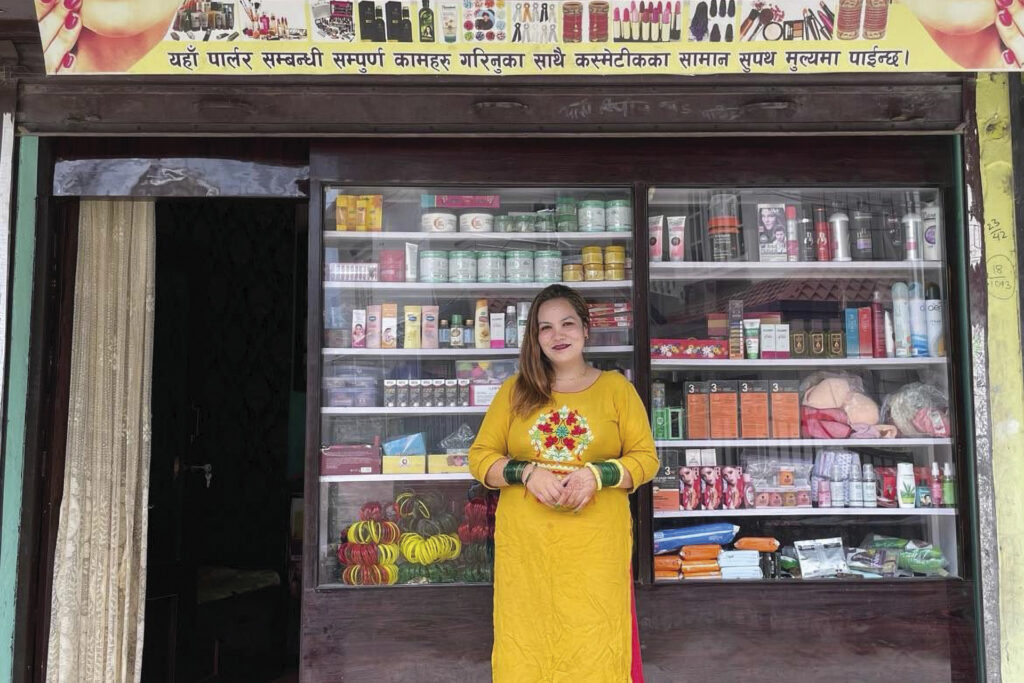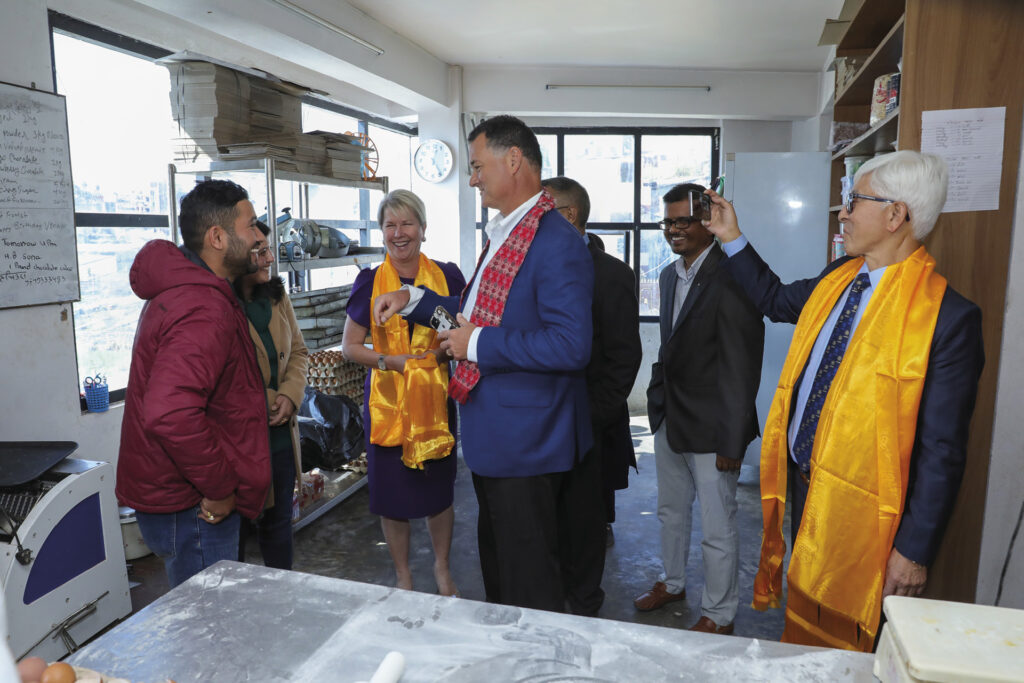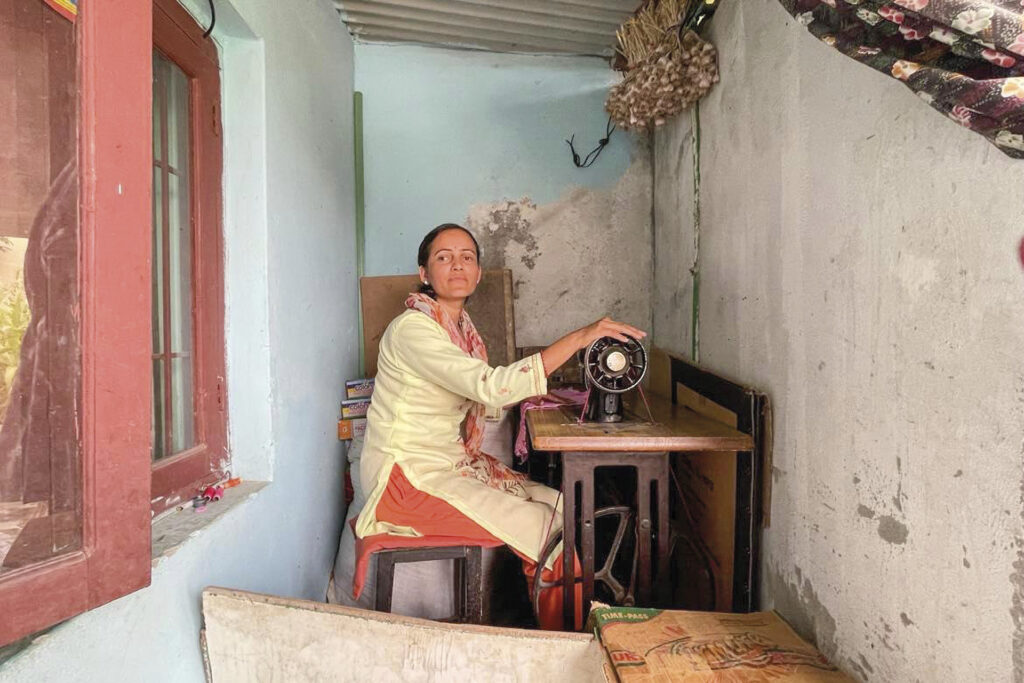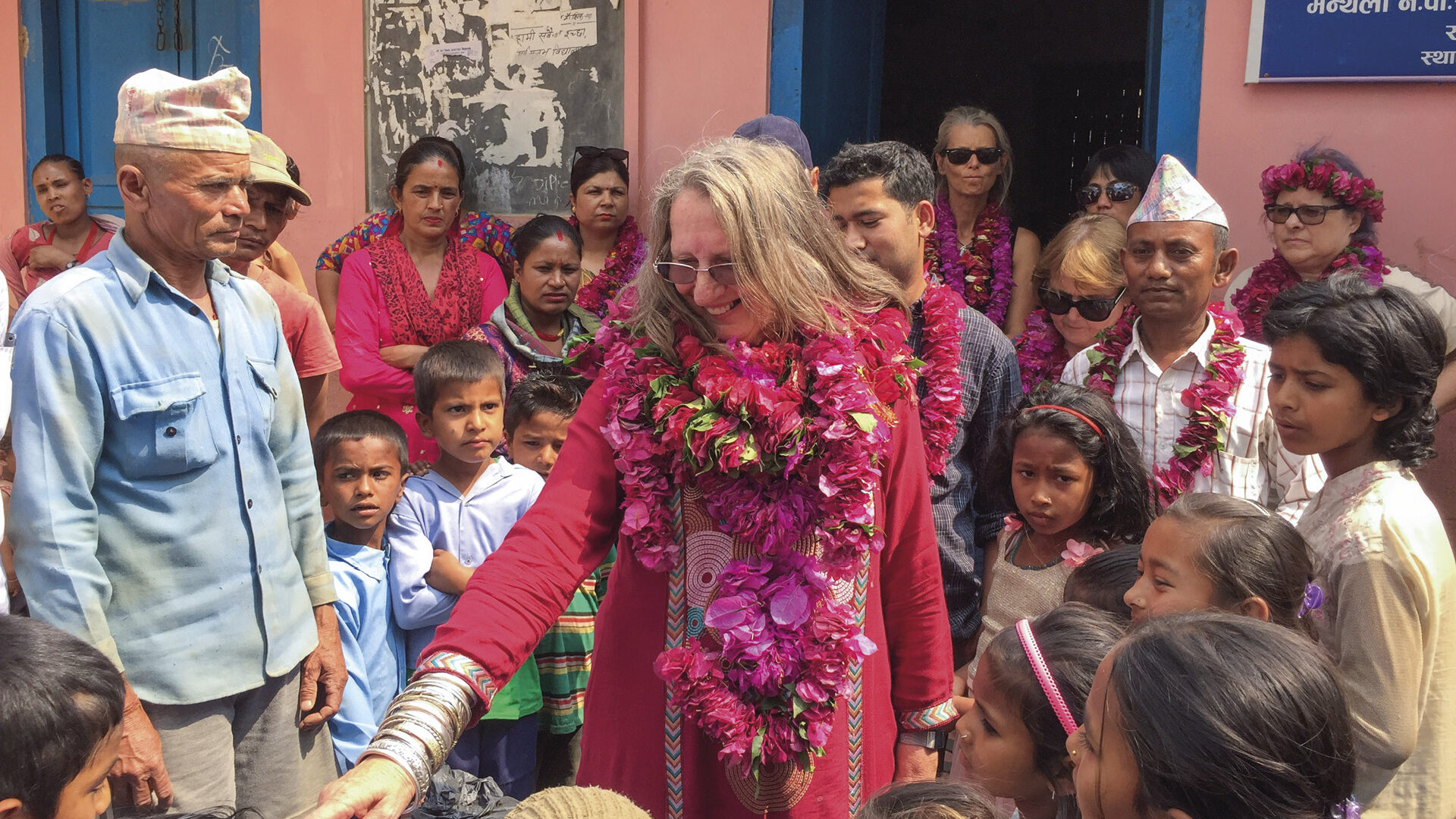By Kylie Hatfield
When then Rotary International President Jennifer Jones visited Nepal in December 2022, she stopped by The Didi Foundation, one of only two organisations to receive a visit during the whirlwind trip. Described as “such an honour” and “inspiring” by The Didi Foundation’s founder, Jan Pryor, Ms Jones’ visit highlighted that the charity’s work is itself inspirational.
“Jennifer was so interested in what we are doing at The Didi Foundation; from the classes that we operate to the café and cooperative. She really enjoyed talking to the women and hearing their stories,” says Jan.
The story of The Didi Foundation starts in Nepal in 2013. Jan and her daughter had been visiting and volunteering in Nepal for a couple of years before starting a home for orphaned children. Jan soon realised that the six children in their care, all of whom were malnourished and sick, had mothers who were, unfortunately, simply unable to care for them.

“I was quite devastated to learn that these women felt they had to give up their children because they couldn’t afford to care for them,” says Jan.
“In Nepal, there’s a caste system, and the women in the bottom rungs of the caste often miss out on education or haven’t had opportunities to move ahead in life.”
Jan set out to purchase five sewing machines and to teach these mothers – and other women – how to sew so that they could make money to support themselves and their children. Being based in Australia, Jan joined the Rotary Club of Northlakes Toukley and quickly gained support for her venture. It was through this membership that Jan was able to register her work as a Rotary Australia World Community Service (RAWCS) project.
“The sewing machines were donated, and The Didi Foundation was born,” says Jan.
“I also established a team of people in Nepal that are very passionate about helping those who are underprivileged; especially the women suffering hardship.”

After a year of providing sewing lessons, The Didi Foundation received Rotary district grants to purchase solar panels and computers, expanding to two rooms to run the computer classes. These opportunities were offered to women who had completed the foundational literacy and numeracy classes, provided by the Foundation as the first step for women to upskill.
“Literacy has always been our foundation; a woman must have reached a grade four standard of literacy and numeracy in order to undertake our vocational courses.”
The Didi Foundation’s growth continued with the construction of its own purpose-built building and new programs were added as the needs of women in the community were identified and opportunities became available.
“We started growing as there was such a need and desire for women to be self-empowered and financially secure,” says Jan.
“But I started finding out that the women wouldn’t come to class when they had their period because of the taboos around menstruation in Nepal as well as the lack of period hygiene products. So, we started making reusable sanitary pads as part of our welfare program.”

“We employed a couple of women to make the reusable sanitary pads and then trained them up to deliver health and hygiene lessons. We’ve been doing that for a few years now and have distributed over 7,000 sanitary kits to disadvantaged women and schoolgirls.”
Jan’s goal is for The Didi Foundation to become self-sustaining and fund its own growth and operations. As part of their developing sustainability model, The Foundation is contracted to run women’s empowerment courses through the local council, and a purpose-built centre includes a café to increase revenue streams. The café also serves as a training ground for the organisation’s cooking classes.
Over 6,300 women have attended The Didi Foundation’s courses since they began in 2013. Of those women, more than 3,500 have gained employment and over 1,100 have started their own businesses.
A cooperative was established to provide microloans to help women set themselves up, with 277 microloans being issued, and 188 already being paid back in full.
“I’ve always realised that the programs we offer at Didi are not about what I want; it’s what the women want and what they’re ready for,” says Jan.
Ten years later, and the continued demand for The Didi Foundation’s courses is leading to further growth. The United Nations has recently granted funding for another level on the building to enable more classes, including a beauty school, which is already in high demand.
“The support of the United Nations High Commissioner for Refugees (UNHCR) goes to show the credibility that The Didi Foundation has in Nepal,” says Jan.
And with Jennifer’s visit late last year, The Didi Foundation has gone into 2023 – their 10th year in operation – with renewed inspiration for the work they are doing to change the lives of women and children in Nepal.
Find out more about The Didi Foundation and how you can support their work at www.didifoundation.org.au
